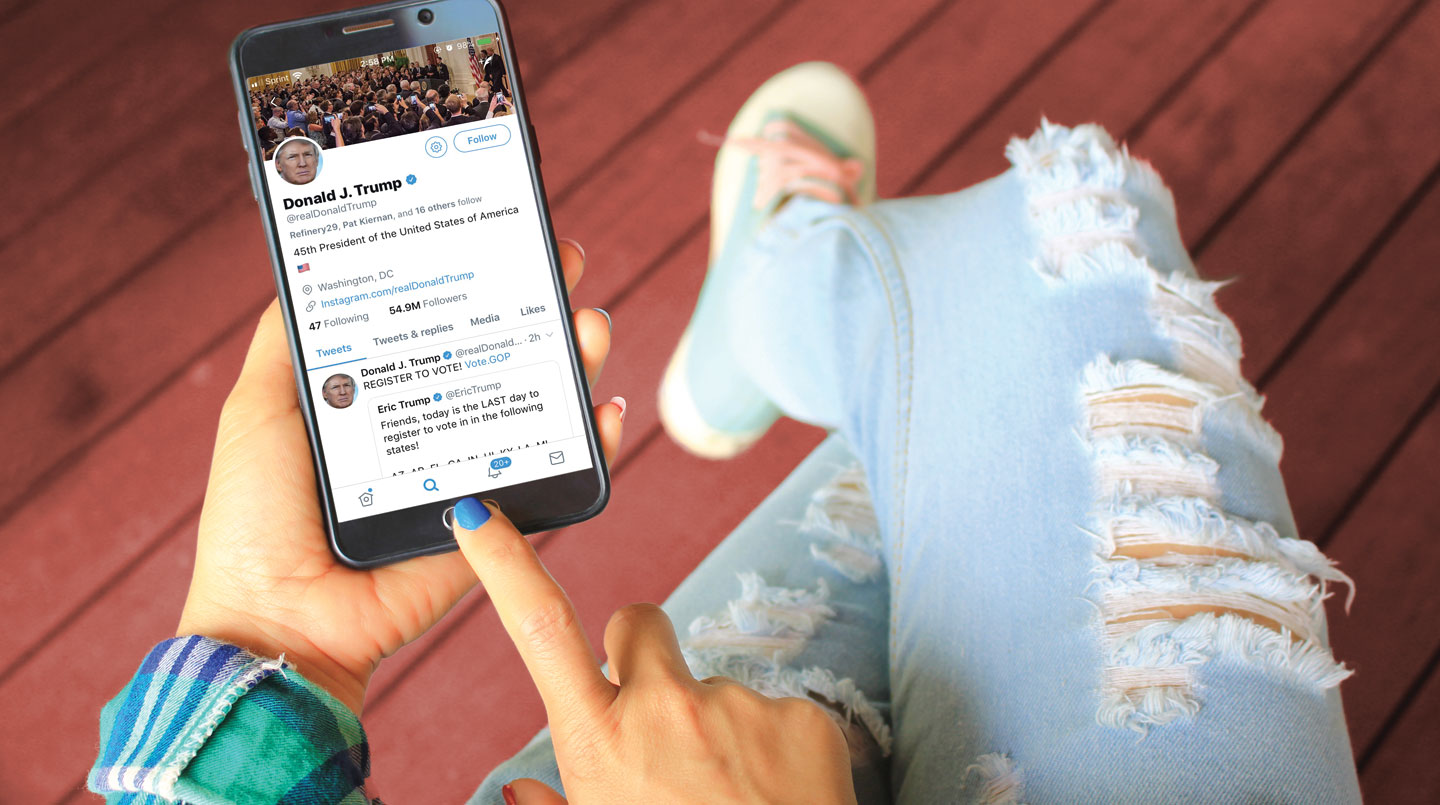Since taking office in 2017, President Donald Trump has posted on Twitter more than 5,000 times. His tweets announce policy decisions, promote his accomplishments, criticize political opponents—and spark debates nationwide.
But it’s his habit of blocking online critics that recently made headlines. Last year, seven people sued Trump for blocking them on Twitter after they posted negative comments about him. And this spring, a federal judge ruled in their favor.
The judge said that blocking users from viewing or commenting on the president’s account (@realDonaldTrump) violates the First Amendment to the U.S. Constitution. That amendment protects free speech and the right to criticize the government, among other things. (Free-speech groups estimate that the president has blocked hundreds of people.)
Lawyers for Trump, however, say the president should be allowed to block whoever he wants—and for whatever reason—just like any other Twitter user. They argue that the First Amendment doesn’t apply because @realDonaldTrump is the president’s personal account, not an official form of government communication. Trump’s lawyers plan to fight the ruling in court, so the legal battle will continue.
What do you think? Should the president be allowed to block people on Twitter? Two experts—one from a conservative research group, the other from an organization that defends free speech—weigh in.

